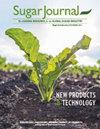Sugar policies opportunity for change
IF 0.3
4区 农林科学
Q4 Agricultural and Biological Sciences
引用次数: 108
Abstract
Sugar is one of the most policy distorted of all commodities, and the European Union, Japan, and the United States are among the worst offenders. But internal changes in the E.U. and U.S. sugar and sweetener markets and international trade commitments make change unavoidable and provide the best opportunity for policy reform in several decades. The nature of reforms can have very different consequences for developing countries. If existing polices in the E.U. and the U.S. are adjusted to accommodate higher imports under international commitments, many low-cost producers, such as Brazil, will lose because they do not currently have large quotas and are not included among the preferential countries. The benefits of sugar policy reform are greatest under multilateral reform, and according to recent studies, the global welfare gains of removal of all trade protection are estimated to total as much as $4.7 billion a year. In countries with the highest protection (Indonesia, Japan, Eastern Europe, Western Europe, and the U.S.), net imports would increase by an estimated 15 million tons a year, which would create employment for nearly one million workers in developing countries. World sugar prices would increase by as much as 40 percent, while sugar prices in countries that heavily protect their markets would decline. Developing countries that have preferential access to the E.U. or U.S. sugar markets are likely to lose some of these preferences as sugar policies change. However, the value of preferential access is less than it appears because many of these producers have high production costs and would not produce at world market prices.制糖政策变革的契机
糖是所有商品中最受政策扭曲的商品之一,欧盟、日本和美国是最严重的罪犯。但是,欧盟和美国糖和甜味剂市场的内部变化以及国际贸易承诺使得变革不可避免,并为几十年来的政策改革提供了最好的机会。改革的性质可能对发展中国家产生截然不同的后果。如果根据国际承诺调整欧盟和美国的现有政策以适应更高的进口,那么巴西等许多低成本生产国将会蒙受损失,因为它们目前没有大量配额,也不在优惠国家之列。在多边改革下,糖政策改革的好处是最大的,根据最近的研究,取消所有贸易保护的全球福利收益估计每年高达47亿美元。在保护程度最高的国家(印度尼西亚、日本、东欧、西欧和美国),净进口量估计每年将增加1500万吨,这将为发展中国家创造近100万工人的就业机会。世界食糖价格将上涨40%,而大力保护其市场的国家的食糖价格将下降。随着食糖政策的改变,那些优先进入欧盟或美国食糖市场的发展中国家可能会失去其中的一些优惠。但是,优惠准入的价值比表面上看起来的要小,因为许多这些生产商的生产成本很高,不会按世界市场价格生产。
本文章由计算机程序翻译,如有差异,请以英文原文为准。
求助全文
约1分钟内获得全文
求助全文
来源期刊

International Sugar Journal
工程技术-农艺学
自引率
33.30%
发文量
0
审稿时长
18-36 weeks
期刊介绍:
International Sugar Journal, first published in 1869, is a peer reviewed technical-trade journal focusing on latest developments in sugar technology and sugar industry. The journal embraces scientific and technical advances in agricultural production right through to the production of sugar crystal, as well as economic, trade and policy issues. Main topics include:
• sugarcane and sugar beet production
• front end operations
• cane and beet sugar manufacture
• sugar refining
• economics, trade and legislation and
• biorenewables (cogeneration, biofuels and biobased products)
Related topics, namely analysis, instrumentation, equipment and machinery, food and non-food uses of sugar and alternative sweeteners also form the focus of the journal.
 求助内容:
求助内容: 应助结果提醒方式:
应助结果提醒方式:


